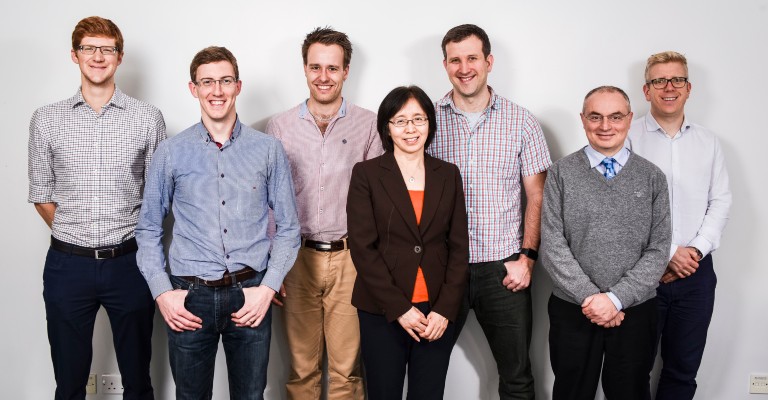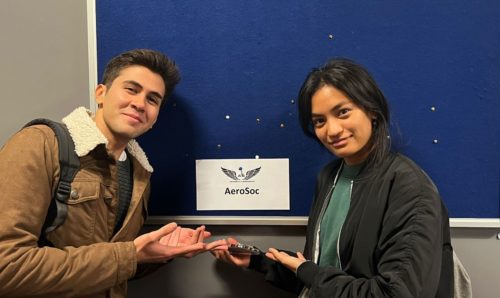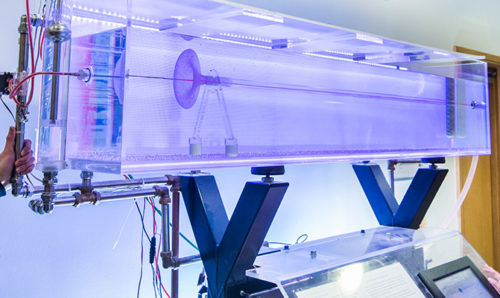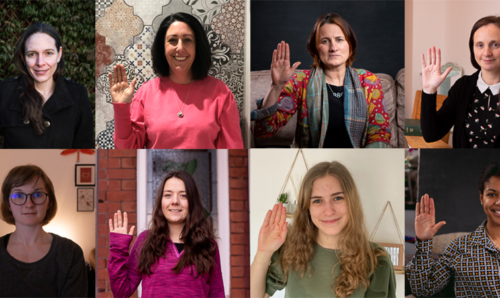Do what motivates you – Adrian Harwood
Meet MACE Research and impact 9th October 2019
Dr Adrian Harwood knows MACE well. After completing his MEng in Aerospace Engineering with Industrial Experience here, he undertook a PhD and then lectureship in MACE before moving to his current role as a Senior Research Software Engineer in the Research IT department.
Adrian now manages projects in the Mobile Development Service and also dedicates time to designing, programming and testing mobile apps for research.
Give us a brief overview of your career path so far…
After completing my PhD, I took on a couple of post-doc projects and then secured a lectureship in aerospace engineering. I believe my strengths are more in hands-on research, though, and I stumbled across my current job where they were looking for someone with technical experience, leadership, training experience and a research track record.
In Research IT, I love the fact that every project I work on is different. I like the responsibility of delivering something game-changing and the freedom to run the service how I see fit.
It is all very motivating and makes full use of the skills I’ve learnt over the last decade. I get stuck in at a technical level while working with a good group of people who enjoy what they do.
What did you learn during your time as a student?
My undergraduate degree offered me the foundations of the wide range of technical knowledge – skills such as report writing, critical reading, modelling and simulation, applied mathematics and engineering-specific domain knowledge.
The placement year taught me all about how organisations work in practice: processes and regulations; dealing with customer expectations; how to test solutions and work in interdisciplinary teams.
“In Research IT, I love the fact that every project I work on is different”
I also missed the freedom and creativity of an academic environment. I learned that job satisfaction and day-to-day motivation were the most important things about a job to me.
My PhD taught me how to be a professional researcher. It enhanced the fundamental skills from undergraduate studies and I had opportunities to improve my presentation skills and to travel. I acquired more detailed scientific knowledge relating to modelling and simulation and mathematics, skills and knowledge which I still use today.
As a post-doc, I shifted research fields and learned about the academic research industry, as well as planning for a career in academia. I also started to supervise and manage students.

However, once I moved into a lectureship, the shift in priorities and expectations was greater than I expected and most of what I enjoyed about my previous job I had to leave behind. Far from being a mistake, this was actually the most valuable bit of learning of my career to date.
“Spend some time discovering who you are – then use the opportunities at university to sample what’s on offer”
What factors have affected the decisions you’ve made about courses, placements and jobs?
I’ve always made decisions based on what I found interesting. I chose to work for Rolls-Royce because of their reputation for being a good engineering firm. However, as graduation neared I had to ask myself what I would be happy doing for the rest of my career – not salary, or social acceptability, or what my friends were doing, or reputation.
The factors of motivation, interest, enjoyment and the possibility of doing some transformative good then became the drivers for every decision I’ve made since.
Why is engineering a great subject to study? What skills and opportunities does it bring?
Engineering is a really good entry into almost anything technical. It offers a broad skill base from which you can pretty much take your career in whatever direction you want. It is specialised but not so specialised that it would ever limit you.
Friends of mine have ended up in all sorts of industries and I’m confident their engineering degrees helped to get them there.
“Engineering offers a broad skill base from which you can pretty much take your career in any direction”
Why do you think career satisfaction and finding the right job and role is so important?
Why would you not prioritise job satisfaction? I would hate to grind through every day then turn round in 30 years and say “what a miserable life, I wish I’d done something more interesting”. Worse still, turning around and saying “look at how much damage my job or company has caused”.
I’d much rather say “my career has been really interesting, look what I’ve learnt, look who I’ve helped, I feel I’ve left the world better than I found it”. This is a no-brainer to me.
What advice would you give to the younger you?
Spend some time discovering who you are. What motivates you? What do you enjoy or dislike? Then use the opportunities at university to sample what’s on offer. Learn a new skill, join a new club, read about a new bit of technology. It’s difficult to make decisions when you don’t have any information on which to base them.
Finally, expect to go against the grain, don’t be surprised if you break the mould, your path is yours to make and it is the right path if it is right for you, regardless of what others think.
Find out more about Research IT at the IT Services website and follow @UoM_eResearch on Twitter.
Or want to meet more MACE staff, students and alumni? Check out the ‘Meet MACE’ section of the blog.





Leave a Reply